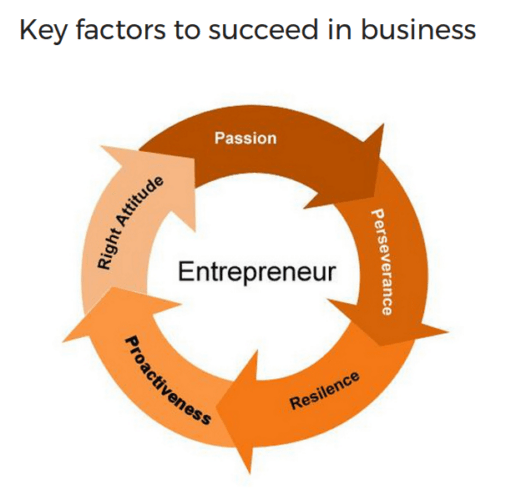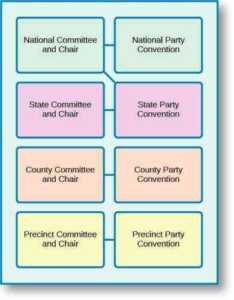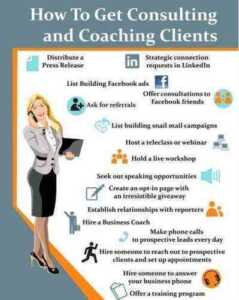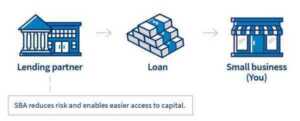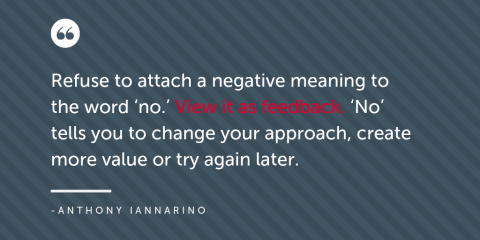It talks about effectiveness, and how every person and organization can define and focus their resources on what is truly important.
In that sense, today I share some tips to help you improve your business And if you put them into practice in 30 days you could be enjoying better results.
It is very common that I eat entrepreneur When you are immersed in the daily to-do of your business activities, you “dilute” yourself without realizing it in an endless number of activities that often do not affect or contribute to the economic results you expect from your company.
For that reason these 30 tips are intended to help you visualize important areas that you can pay more attention to:
- day 1: Decide firmly what kind of entrepreneur you want to be: successful or mediocre. Your attitude is a fundamental decision for the whole of your business.
- Day 2: Make a commitment to yourself. After evaluate your attitude, commit yourself and review your goals, your dreams and motivations to do what you do.
- day 3: Evaluate your monthly budget. Carefully review your fixed and variable expenses and cut out any unnecessary expenses that do not contribute to the Growth of the company.
- day 4: Allocate a percentage of your budget for promotion. An unknown company is like a beautiful island where nobody arrives. Define an amount to spend monthly on low-cost promotional activities.
- day 5: Make up your mind to sell more. Sales are the growth engine of your company. If you don’t have an aggressive sales strategy, it’s time to put everything aside and go out and sell, sell, sell!
- day 6: Train your salespeople. Your sales force needs constant motivation and training. Prepare a training plan and if necessary invest in a professional to help them improve their sales effectiveness.
- day 7: Organize your customer base. There is nothing that makes a company lose more than internal disorganization. If you don’t have an organized database of your customers, today is the time to start building it.
- day 8: Mindful of your best customers. Whoever buys you more must feel like king otherwise the competition could soon conquer him. Send a thank you card, a gift, or a special offer to your best customers.
- day 9: Make a call to old clients. Call customers who have already bought you with anteriority and that for whatever reason they stopped doing it is called a “recovery strategy.” Offer them some “benefit” for buying from you again.
- day 10: Check your prices. Especially in times of crisis it is convenient evaluate profit margins and consider the possibility of a minimal adjustment.
- day 11: Make offers. A good strategy to attract customers is to create offers temporary to help you hook them or create offers designed to attract new customers.
- day 12: Reward the best sellers. If there is something that motivates a salesperson, it is to be recognized as such. An additional incentive for the best could mean that your sales multiply.
- day 13: Evaluate your “methods“management. If your collaborators do not have full confidence in you as a leader, it is time to start working on it urgently.
- day 14: Promotes innovation and ideas. Many of the great ideas they come from your employees or collaborators. Create a conducive environment that values good proposals.
- day 15: Eliminate unnecessary meetings. Many meetings are of no use other than to give a sense of “activism“That contributes nothing. Eliminate any meeting that does not make any useful sense.
- day 16: Remove everything activism in the company. Doing for doing does not lead to anything. Detect and eliminate any activity that absorbs the valuable time of your collaborators that can be invested in truly important activities.
- day 17: Evaluate your human capital. Your staff is very valuable, but overstaffing can be an unnecessary burden on the company. Restructure Features can help you be more effective on both human resources and your budget.
- day 18: Improve the presentation of your company. An old saying goes “how I see you … I treat you”. Make the necessary improvements to the image of your company. The receptionist, the salespeople, the customer service on the phone and yourself should reflect a successful business.
- day 19: Don’t be a desk manager. Commit yourself with business and involucate in the role of the different areas of your business. Be the best salesperson in your company.
- day 20: Deshazte unnecessary inventory. Many of your assets may be obsolete or unnecessary and take up valuable space that you may need for other activities or to reduce your rental costs. Evaluate and sell any unnecessary assets.
- day 21: Improve internal security. Insecurity is a high risk factor for every company. Evaluate and improve your protection mechanisms.
- day 22: Review the business structure. This process will surely take a few days but the restructuring carried out wisely can substantially improve a company’s effectiveness and results
- day 23: Become a page of Internet of your business. If you still do not have it, it is time for your company to be in Internet and that you offer your customers a communication via email. There are many free resources that you can throw mano.
- day 24: Improve your purchasing systems. As important as selling is buying. Evaluate your purchasing mechanisms and your suppliers. Make sure of to get the best discounts and benefits or better suppliers.
- day 25: Reduce or eliminate your “ant” costs. Unnecessary phone calls, purchases of supplies that are not useful, gasoline, food and many others are costs that are often not seen but that in the long run have a direct impact on profits.
- day 26: Focus in what is important. Define the most important tasks of each department and each person and focus in solving and carrying them out. This will result in a more effective organization in the pursuit of its goals.
- day 27: Consider rest in your culture organizational. Don’t take a rest now and then it’s too great a luxury for little and for your collaborators. Establish rest periods and commit yourself to fulfill them. It is a proven fact that resting you regenerates energy and mental capacity to be more productive.
- day 28: Organize your schedule and learn to say NO. A complement to this principle of effectiveness is learning to say no to every activity or task inconsequential just fill your schedule and wear you back on “activism“.
- day 29: Buy yourself a book. A good entrepreneur is always learning. Buy yourself today a business book, motivation, leadership or how to improve your family relationship and commit yourself to read it. The best asset you have is yourself.
- day 30: Assess the risks. A good entrepreneur is farsighted. Anticipate to the risks you might face and develop a contingency plan.
You may be thinking that in reality this is not done in 30 days, and I agree with it but the intention is ultimately to help you visualize those weak areas of your business and work on what is really important. Your suggestions to add to this list are always welcome.
Other topics for improve your business:

